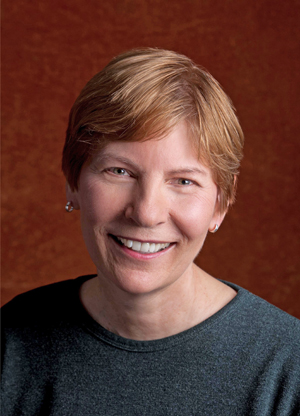By Kathy Berken

I was surprised when a friend announced she was giving up Facebook for Lent. Why would you just abandon the 10,000 people who have suddenly become your friends in the last six months? Perspective. My friend wanted to spend more time with her children. I use Facebook to stay in touch. And, OK, I play “Words with Friends.”
Just this morning, as I scrolled through the dozens of posts telling me the latest political, religious and personal news, I found Facebook talking about itself. There on a friend’s wall was that familiar form of communication: a sign. In large red block letters, it read, “Welcome to Facebook.” Well, thank you very much. It described Facebook as a place where people pass you on the street but add you as a friend, liars pretend to tell the truth, relationships are perfect, enemies visit your profiles more than friends, and all that. Huh. Really? Not my experience. But I was more surprised at the comments. Nine out of 10 of the 400-plus people agreed (with enthusiasm!) and promised to share. The tiny minority soberly stated they used Facebook to keep track of family and long-standing friendships.
So what? It doesn’t really matter why you gave it up for Lent, whether you use Facebook to brag about whomever, ask for help raising your kids or your cat, offer an inspirational quote, share a new piece of trivia, clobber a political opinion, confront a public bully, or post a photo of your yummiest apple pie. It doesn’t matter if you play games or have just discovered Pinterest.
Here’s what matters. Facebook is a descendant of what Jesuit theologian/geologist/paleontologist Pierre Teilhard de Chardin called the “noosphere” in his 1922 opus, “Cosmogenesis.” It’s the living web of consciousness that surrounds us, where we move ever slowly towards the Omega point of convergence, or God. The Internet has become a synaptic web. Social media networking sites such as Facebook, Twitter and LinkedIn do more than give us a place to say hello, post a photo, comment on a friend’s post, or tell whatever is on our mind every 10 minutes.
I’m convinced that, regardless what New York Times columnist Pamela Paul complained on Feb. 10 about receiving TMI (Too Much Information) from people she barely knew, these sites are a physical way to participate in the evolution of Teilhard’s noosphere, web of consciousness, towards fullness in the Divine Mystery.
Two weeks later, Times columnist Jan Hoffman wrote “Trying to Find a Cry of Desperation Amid the Facebook Drama,” in which she noted that “dark postings [by adolescents] should not be hastily dismissed because they can serve as signs of depression and an early warning system for timely intervention.” Good things are happening online.
Current ads depicting a cool person announcing the speed at which you can post anything on your phone with “that was so 27 seconds ago,” reflect this increasing reality of a unified consciousness. We crave community. That is the core of why social media, along with texting and email, is so darn popular.
Princeton University houses (but does not sponsor) the Global Consciousness Project. Its website (http://noosphere.
princeton.edu/) describes its purpose: “to examine subtle correlations that appear to reflect the presence and activity of consciousness in the world. Just as the biosphere is composed of all the organisms on Earth and their interactions, Pierre Teilhard de Chardin postulated that the noosphere is composed of all the interacting minds on Earth. The word refers to a trans-human consciousness emerging from our interactions to become a guiding intelligence for the earth.
In other words, there is a realistic correlation between mental activity and physical phenomenon. People who believe in the power of prayer already know this. Life on earth is growing closer, forming a more connected conscious mind. If community is what we crave, and if being one body is what Jesus preached with his words at the Last Supper, then scientific terms such as noosphere, biosphere and global consciousness can become part of our religious lexicon. We search for meaning in prayer and the Eucharist. We find it our increasing awareness of being the body of Christ in places such as Facebook.
(Kathy Berken recently received a master’s in theology from St. Catherine University, St. Paul, Minn. She lived and worked at The Arch, L’Arche in Clinton (1999-2009) and is author of “Walking on a Rolling Deck: Life on the Ark (stories from The Arch)”.)







